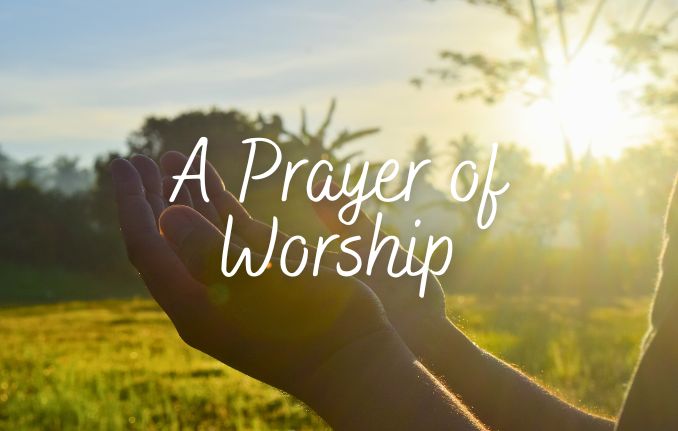With the start of a new year, many of us have a renewed interest and commitment to reading the Bible. Whether we’re a seasoned Bible reader or we’re just getting started, reading the Scriptures can be overwhelming. While the Bible is a big and complex book, the Scriptures are designed to be accessible to all of us! I hope you are ready to jump in, or continue, your Bible reading in the new year.
As you begin your Bible reading for 2023, here are 4 tips to help maximize your reading of God’s Word this year.
Tip #1: Read big
With just a quick glance, it is obvious that the layout of most Bibles is very different from most of the books we read. Take a book from your bookshelf or book stack, open it, and compare it to the Bible. Most likely the Bible is formatted very differently. The majority of Bibles are printed with two columns of text (usually) on each page. There are numbers everywhere—big numbers that are for chapters and small numbers that are verses. Your favorite novel doesn’t have all those markings.
The history of Bible publishing and how we got our modern Bible is fascinating and revealing. The modern Bible is a very different experience than when it was originally written. For example, the writings of the apostle Paul were letters—letters written on parchment, delivered by a messenger. The letters were probably read out loud to a group of people who had gathered to hear them. There were no book titles. No chapters. No verses. No footnotes. No section headings. No study notes. No commentary. No leather covers. It was just a letter.
We’ve added a lot since then, especially in recent years.
Chapters were not added to the Bible until the 13th century by Stephen Langton, Archbishop of Canterbury. He was writing a commentary and used chapter numbers pragmatically as a way of finding things in his reference work. Verses were added some 300 years later in the 16th century, again as a pragmatic tool. In the history of the Bible, these are relatively modern features.
Since then, we’ve added a lot of other features: section headings, red letters, commentary. Bible publishers have been marketing the Bible in ways that grab our interests with specialty Bibles that have supplemental materials just for the niche reader.
None of that is necessarily bad, but some Bible scholars are beginning to question how our modern Bible has changed the way we read it.
One of the unintended consequences of all the things we’ve added to the Bible is that we read in small, bite-sized bits. We read a verse here and a verse there. Our eyes are trained to stop at section headings that create breaks in the text that the author may have never intended. We tend to read small sections of the Bible that correspond to a devotional guide or a Bible reading plan.
And these comments aren’t intended to be critical. Walk Thru the Bible publishes Bible reading plans and devotional guides and Bibles to help you read through God’s Word.
However, we tend to read small—a few verses, maybe a section, perhaps a chapter. In reading small, we miss a lot. We miss the grand storyline of a book. We miss the broader contexts of what we are reading. We miss the opportunity to get lost in the beauty of the Bible the way we might as if we are curled up with our favorite novel. The Bible becomes a checklist to get done rather than a story to be mesmerized with.
As you read the Bible this year, I encourage you to try something new: read big!
Bigness refers to the amount of Bible we are reading. Find time to sit down and read large portions of the Bible. Don’t read verses or sections or even chapters. Read entire books at a time. Carve out some time and read a Gospel in one sitting. Or read Paul’s letters as if you had just gotten a letter from a friend that you wouldn’t put down until you are finished. Or read the entire book of Ruth at one time.
It may not be practical for you do that every day. But can you find time once a week to read big? When we read complete books or movements in the Bible, we will hear and experience and love this book in different ways that invite us to truly engage with God’s Word.
Tip #2: Read in community
How good are you at keeping New Year’s resolutions? If you are like the rest of us, then you’re probably not great at them either. The majority of resolutions made in a new year—like eating healthy, saving money, making time to exercise, reading more, starting a new hobby, learning a new skill—aren’t kept or accomplished. For many of us, they only last a few weeks. Sometimes it is just a few days.
A lot of Christians started the new year with a big dream of reading the Bible more—maybe daily or all the way through.
And for all of our good intentions, sticking with it is hard.
One of the best ways to stick with our Bible reading commitment is to read in community.
We find support systems for all sorts of new behaviors instead of going at it alone. Groups and support systems serve as a motivation and, most importantly, as accountability to stick with those new commitments. We know that motivation and accountability are important and will increase the likelihood that we stick with hard things, especially when we don’t do them alone.
Why should Bible reading be any different? Why do we think we have to do this alone?
If we know we need some accountability and community to exercise and eat healthy and lose weight, what if we found accountability and community to read the Bible this year?
Finding a small group of people (your Bible study group, family, friends) and reading on the same Bible reading schedule is a powerful motivation to stick with it—especially if you hold each other accountable by discussing what you are reading together.
Tip #3: Pray the Scriptures
What is the most unusual thing you’ve ever had on your Christmas list? When my oldest son was around 5 years old, he added a bag of dirt as a last-minute addition to his list. He wanted some dirt to build a track for his toy trucks, so we made sure he unwrapped some dirt on Christmas morning. However, we did get some strange looks when he told people what was on his Christmas list!
As a Christ follower, I wonder sometimes how God views the kinds of requests that we make in prayer. Do my prayers sound like a spoiled kid who asks for and expects everything? Or do they sound like random requests like asking for a bag of dirt for Christmas?
In John 15:7, Jesus makes a remarkable promise, “If you remain in Me and My words remain in you, ask whatever you wish, and it will be done for you.”
Our attention is usually drawn to the last part of that verse: Ask whatever you wish and it will be done for you. What a remarkable promise! But Jesus qualifies that with an often overlooked “if”—if you remain in Me and My words remain in you.
How do we pray asking God what we wish for but doing so knowing that God’s Word has remained in us? The answer to this question is why I think it is important to pray the Scriptures—which is the third tip to maximize your Bible reading in the new year.
Praying the Scriptures is a longstanding discipline of using the Bible as our guide in prayer. As you read the Bible, pause and pray back to God the ideas or even the words you’ve read. It may be a prayer of thanksgiving as the Bible reminds us of God’s goodness in our life. Or it could be a prayer of confession when we’ve read something that convicts us. Or it may be a request that is prompted by what we’ve read. Or it may simply be a prayer of worship and adoration for what the Word has revealed about God.
Praying the Scriptures often requires a slow and deliberate reading of the Bible. However, it is one of the most effective ways to align our prayers with God’s will and God’s Word. If you’ve not been praying your way through the Bible, try experiencing the Scriptures through the lens of prayer in the new year.
Tip #4: Listen instead of read
There is an interesting, and perhaps too easily overlooked, instruction in 1 Timothy 4:13, “Until I come, devote yourself to the public reading of Scripture, to preaching and teaching.”
Most of us, especially in the west, have unlimited access to the Bible. From a copy of the Scriptures that we have in our homes or simply opening an app on our phone or even listening through the Word, we have the remarkable privilege of reading the Bible for ourselves.
The transmission of the Bible in the early church was done largely through public reading. In the first century, all throughout the Greco Roman world, there were public reading events as a means of how literature was commonly shared. Two thousand years ago in the early church, in the absence of digital media and when printed copies were hand written, public reading was the most efficient means of distribution.
One way to add variety to our Bible reading and experience the Bible in a different way is to return to how God’s Word was received for most early believers—listening to the Bible.
Listening to the Bible allows us to experience the Bible in new, different ways than when we read. If you’ve been reading the Bible, think about occasionally replacing or adding listening to the voice of God in His Word. There are great audio Bibles, podcasts (including Walk Thru the Bible’s Daily Walk Podcast), and mobile phone apps that will help you listen to the Bible.
At Walk Thru the Bible, our prayer is that this year is a year where your passion for the Word of God is ignited in new and fresh ways. The Bible changes everything—and we hope you give it a chance this year to change you.
***
by Michael Gunnin, Walk Thru the Bible’s Chief Growth Officer



